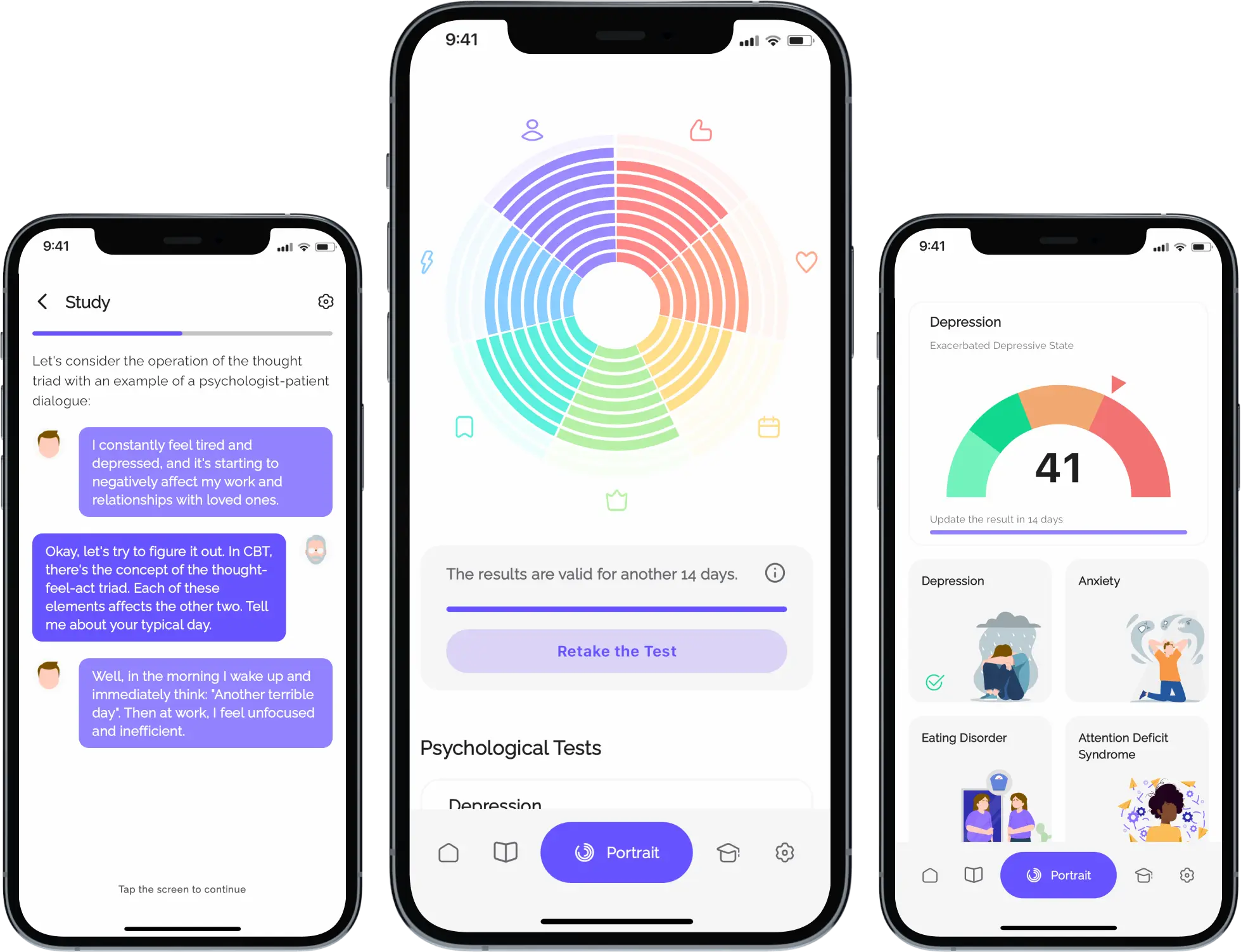
Perfectionism can unexpectedly act as both a symptom and a cause of depression.
For many, high standards and demands on themselves and others seem to be the driving force. However, when expectations become unrealistic, they can turn into a trap, leading to a constant feeling of inadequacy, incessant criticism, and, as a result, depression.
"Perfectionism" means striving for the ideal. There are different forms of it:
Personality-oriented, or autopersonalism, is characterized by an internal striving for perfection. People of this type may spend sleepless nights rechecking reports for errors, not leave the house because of an insufficiently neat hairstyle, experience deep guilt for the slightest mistakes, and constantly feel not good enough.
Externally oriented perfectionism demands perfection from others, as in the case of parents expecting excellent grades from their children, or a leader demanding impeccable work from their employees.
To understand if you suffer from destructive perfectionism, pay attention to such signs as an unyielding need for perfection, dependence on the opinions of others, fear of disappointing, striving for unattainable goals, inability to accept criticism, and excessive strictness towards yourself and others.
If you seek perfection, you will never be satisfied.
Lev Tolstoy
More content in our app
You're only seeing a portion of the content. In the app, you'll find numerous interactive articles. Additionally, there are psychological tests to track your mood dynamics, a daily planner, an automatic thought journal, and much more!

If you recognize yourself in these descriptions, do not despair. There are effective methods for overcoming perfectionism.
However, it is important to realize that at the very core of perfectionism lies a paradox: perfection is an illusion.
Everything in the world can be improved, and striving for the absolute ideal is doomed to disappointment.
Having learned this, you can begin the path to liberation from the shackles of perfectionism, directing your efforts towards achieving realistic goals and learning to find joy in the imperfection of the world and yourself in it.
To fight something, it is important to clearly understand your need for it.
If you consider perfectionism to be useful and do not see anything wrong with it, you are unlikely to be able to achieve change.
Let's start by looking at the advantages and disadvantages of perfectionism.
It certainly has positive aspects, such as high standards for oneself can contribute to hard work. However, when faced with mistakes, you may be too critical of yourself.
There is a distinction between adaptive and maladaptive perfectionism.
Adaptive perfectionism can strengthen your perseverance and responsibility, helping you achieve goals without unnecessary self-criticism and fear of failure.
At the same time, maladaptive perfectionism leads to excessive demands on oneself and others, anxiety about any mistake, which can cause anxiety, depression, and procrastination.
The line between these two types is very thin.
Try to make a list of the pros and cons of your perfectionism. Something like this:
If the analysis showed that perfectionism negatively affects your life, and you felt the need to work on it, we are ready to share effective tips and techniques for overcoming this challenge.








